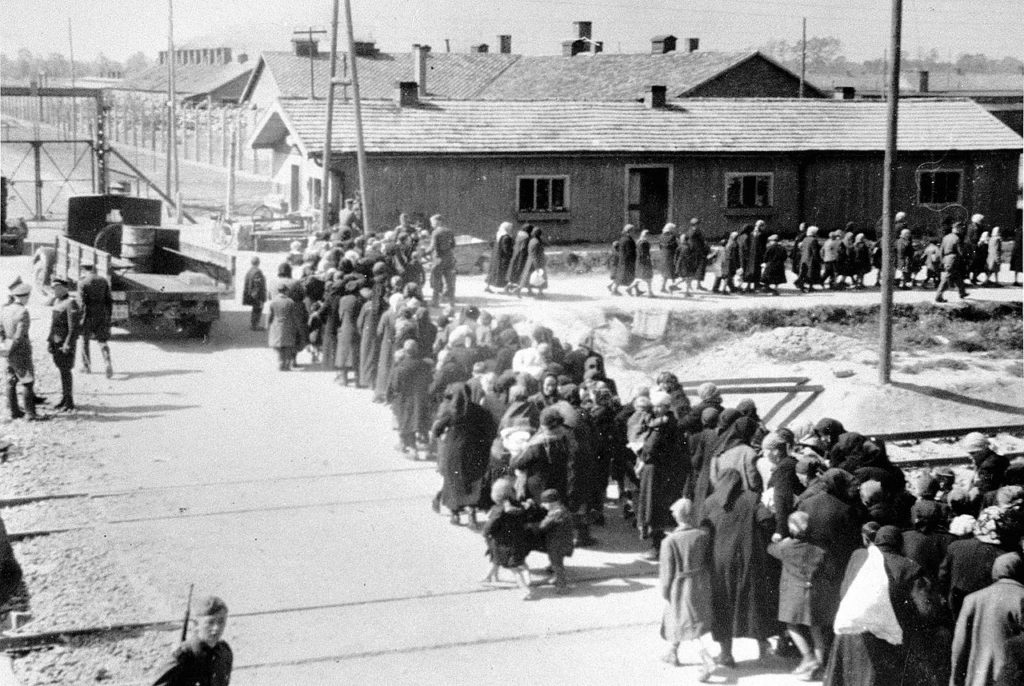Why we remember the Holocaust at the University of Northampton
Date 15.01.2020

A rise in recorded instances of racism and intolerance in society means Holocaust Memorial Day is as important as ever in 2020, according to an expert in far-right extremism from the University of Northampton.
In a blog to mark the day, Senior Lecturer in History, Dr Paul Jackson, pictured above, points to institutions as diverse as football, mainstream politics and the royal family that have all been accused of racism in recent times.
He also points out that race hate crimes against children, and anti-Semitic and anti-Muslim incidents, are also on the rise, while people’s understanding of the Holocaust is on the wane.
You can read Dr Jackson’s blog, below – and find out how the University is marking Holocaust Memorial Day, on Wednesday 22 January, on our Events page.
Every year, the University of Northampton marks Holocaust Memorial Day and, as an organiser, I am always asked to reflect on why we should remember this horrific episode of European history. This year’s event takes place on the 22 January, and features talks from an expert historian, Dr Raul Carstocea, as well as contributions from the Northamptonshire Rights and Equalities Council, the local Jewish community and the Students’ Union.
There are many reasons to mark Holocaust Memorial Day, and remember the genocide of millions by the Nazi regime and its many collaborators across Europe. One reason that always seems to be relevant – though in ever-changing ways – is that recalling some of the most extreme forms of racism from the recent past helps us appreciate why we should not put up with intolerance today.
Worryingly though, it seems in recent years that we live in a society where issues of racism and intolerance are on the rise. Institutions as diverse as football, mainstream politics and the royal family have all been accused of racism in recent times.
One area that is particularly concerning, when reflecting on the ongoing relevance of the history of the Holocaust, is the way racism towards Britain’s Jewish communities has grown. The most recent report on antisemitism in Britain from the Community Security Trust, an organisation dedicated to advocating for Britain’s Jewish Communities, highlighted the following:
‘The CST recorded 892 antisemitic incidents across the United Kingdom in the first six months of 2019, which is the highest ever total that CST has recorded in the January-June period of any year.’
Jewish people are not the only ones experiencing high recorded rates of prejudice either. A government website on overall rates of hate crimes highlights that:
‘Police recorded crime figures show in 2018/19 that there were 103,379 offences recorded by the police where one or more of the central monitored hate crime strands were deemed to be a motivating factor. This was 10% higher than in 2017/18.’
Similarly, in May 2019, the NSPCC reported that race hate crimes against children had reached a three-year high.
Tell Mama, an organisation that records and supports victims of anti-Muslim prejudice also released a report last year, Normalising Hatred. This argued there was a growing acceptability of prejudice against Muslim people, and stated:
‘The rising instances of discrimination, hate speech, and anti-Muslim literature indicate that a more general intolerance and hatred is growing.’
Higher documented rates of hate crimes, racism and discrimination can, in part, be put down to better reporting and recording. However, collectively such data points to a worrying set of attitudes in Britain today, one that demands clear leadership. While we might want to turn to politicians for solutions, the record of the leaders of both the main parties in Britain, the Labour Party and the Conservative Party, have also been called into question on such issues in recent times.
Returning to the memory of the Holocaust, this history is also often poorly understood by the British public. Last January, the Holocaust Memorial Day Trust released the findings from a poll carried out by Opinion Matters. It highlighted that 45% of British people surveyed did not know how many Jewish people died because of the Holocaust, and that 19%, around one in five, thought the figure was below 2 million people. The real figure is six million Jewish people. Of course, many more people from other communities were also killed, making this overall figure much higher.
Such data highlighting some worrying levels of public ignorance regarding the scale of the Holocaust certainly suggest that becoming more familiar with this history, and taking time to remember where the extremes of racism take a society, is important.
In Britain, Holocaust Memorial Day is marked on and around the 27th January, the date that Auschwitz was liberated by the Soviet Union. Notably, this year marks the 75th anniversary of the liberation of Auschwitz. When it was liberated, just over 7,000 people remained at the camp, most of whom were close to death or very ill.
These 7,000 people were a small number compared to the estimated 1.3 million people that were deported to the Auschwitz labour and death camp, from its inception in 1940 to its demise in 1945. At least 1.1 million of those sent to Auschwitz, who were mostly Jewish people, were killed. This was also just one site of the Holocaust.
The historian Saul Friedlander claims that we can never fully understand the conditions of the Holocaust. However, he suggests we must listen to the voices and experiences of those who lived through it, as these can act as ‘lightning flashes that illuminate parts of the landscape’.

Hungarian women and children deported to Auschwitz in 1944 walking to gas chambers. In 1944, in only eight weeks, around 424,000 Jewish people were deported from Hungary to Auschwitz.
These flashes from the past are important. The racism we see around us today is not the same as the eliminationist, genocidal racism that developed by the Second World War in Germany and across Europe. However, although we are not living at that time, one reason why we must remember this past is to reflect on the need to always raise our own standards.

Rare image of Auschwitz from a victim’s perspective. It was taken by a Sonderkommando in 1944, and shows bodies being burned at Auschwitz.